
Civilization and enlightenment, and recovery from the earthquake
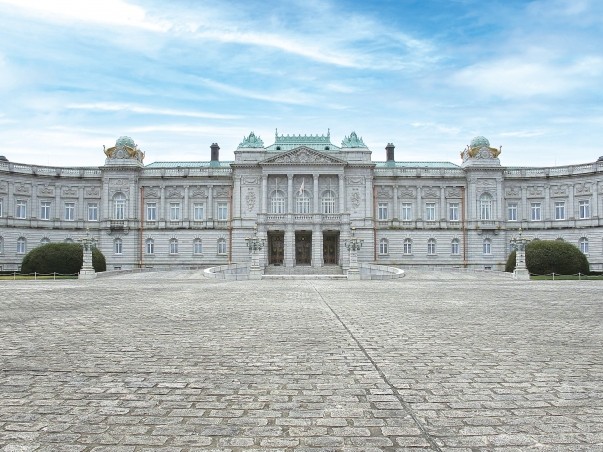
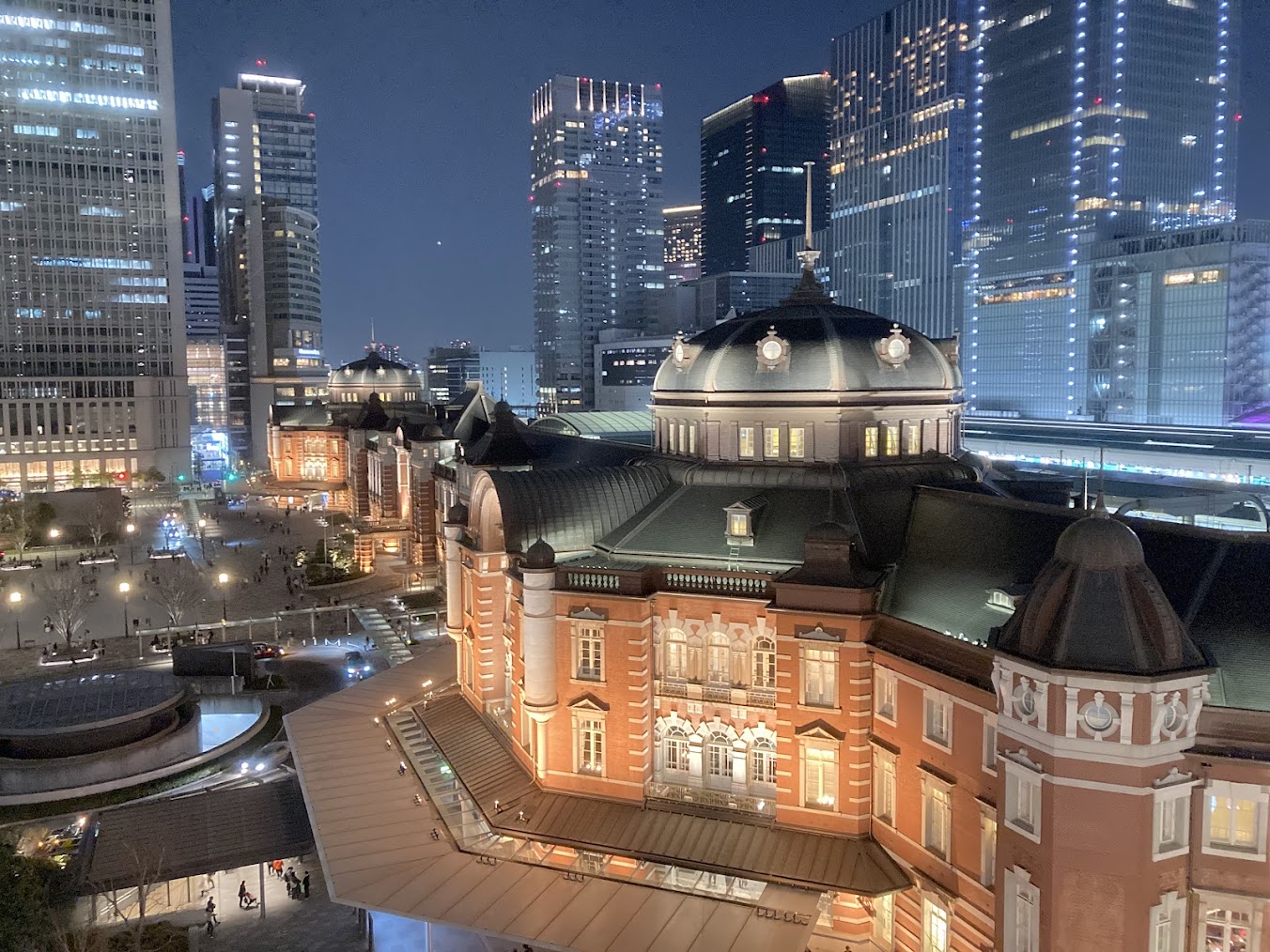
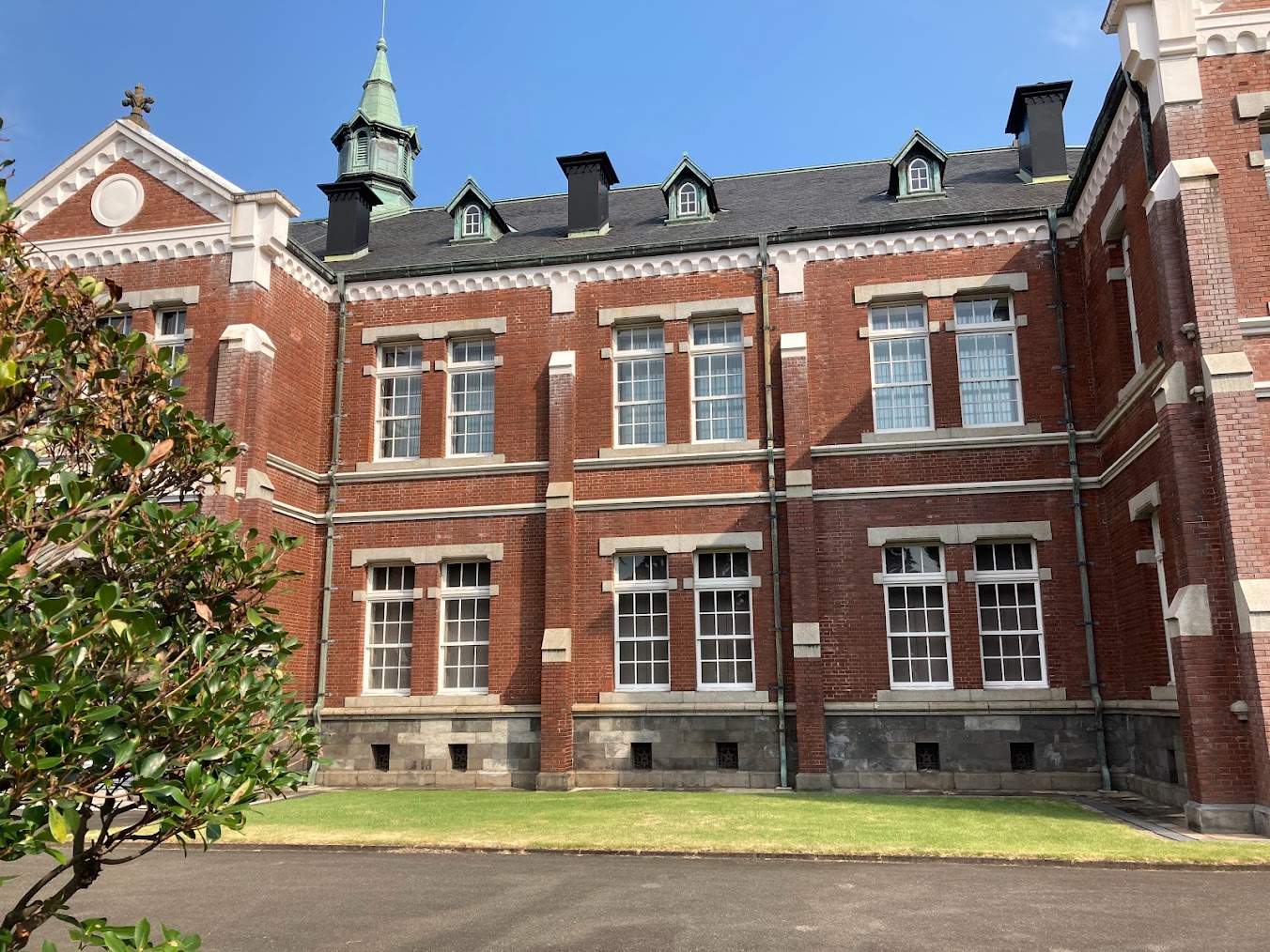
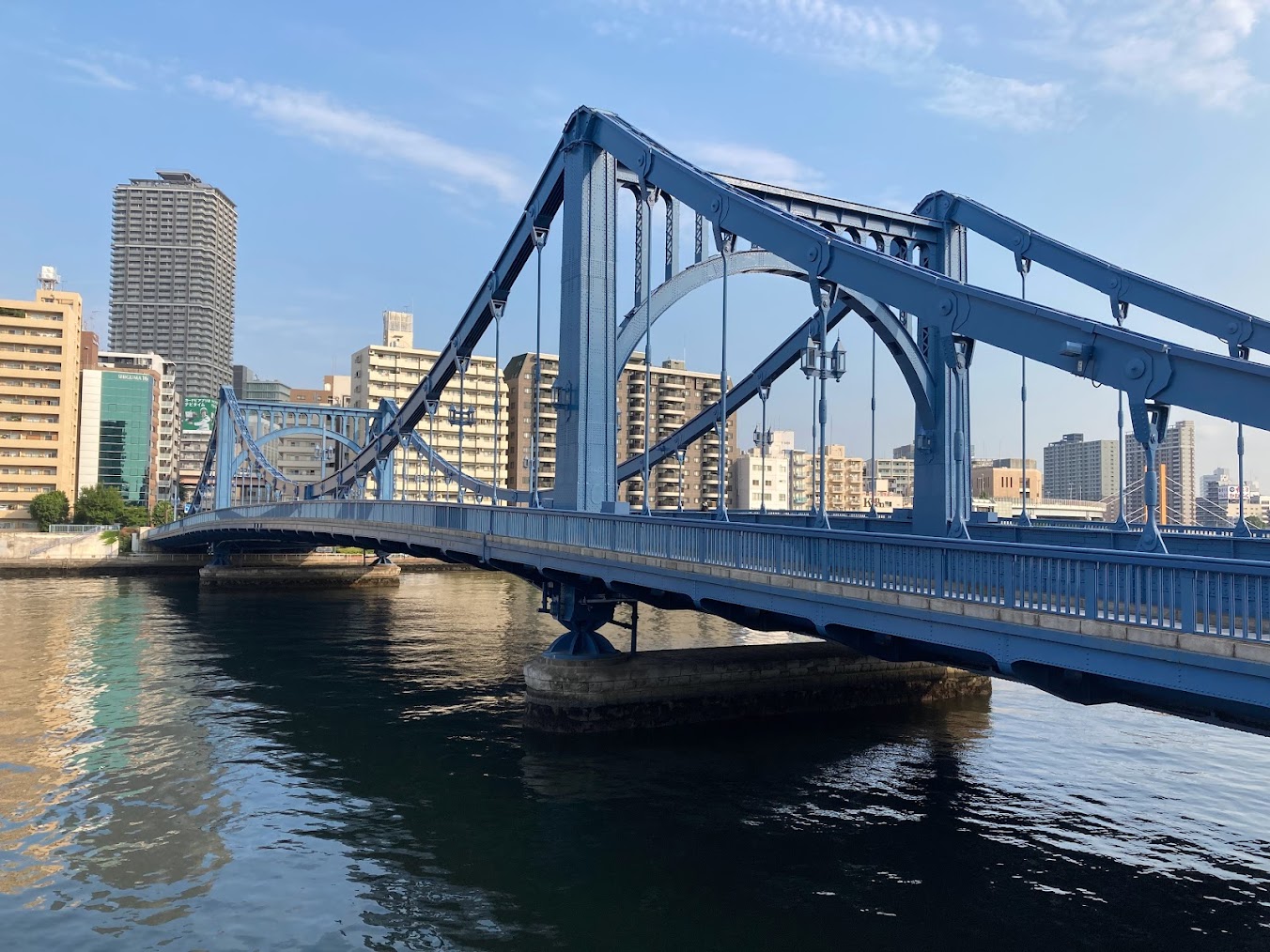
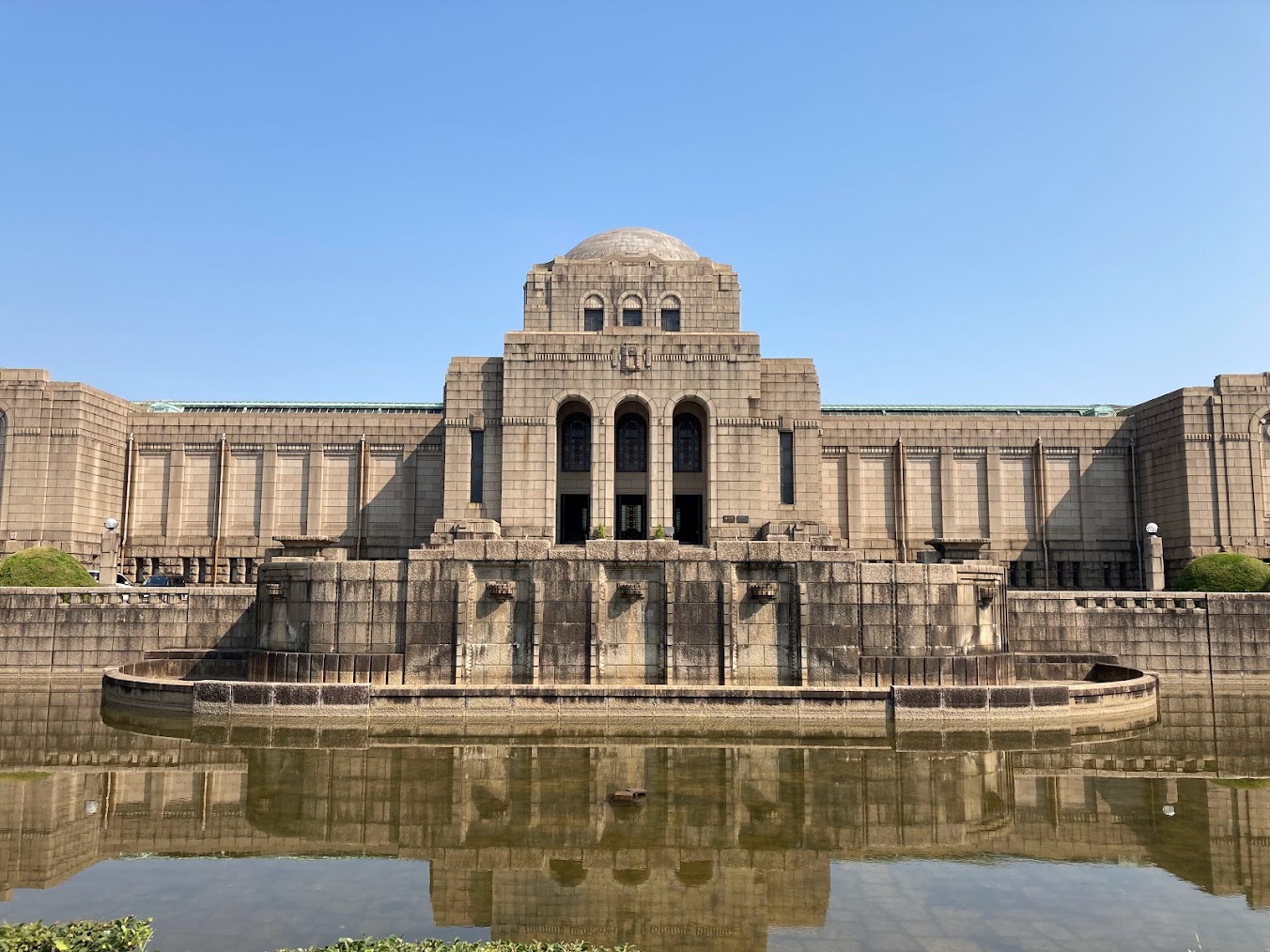
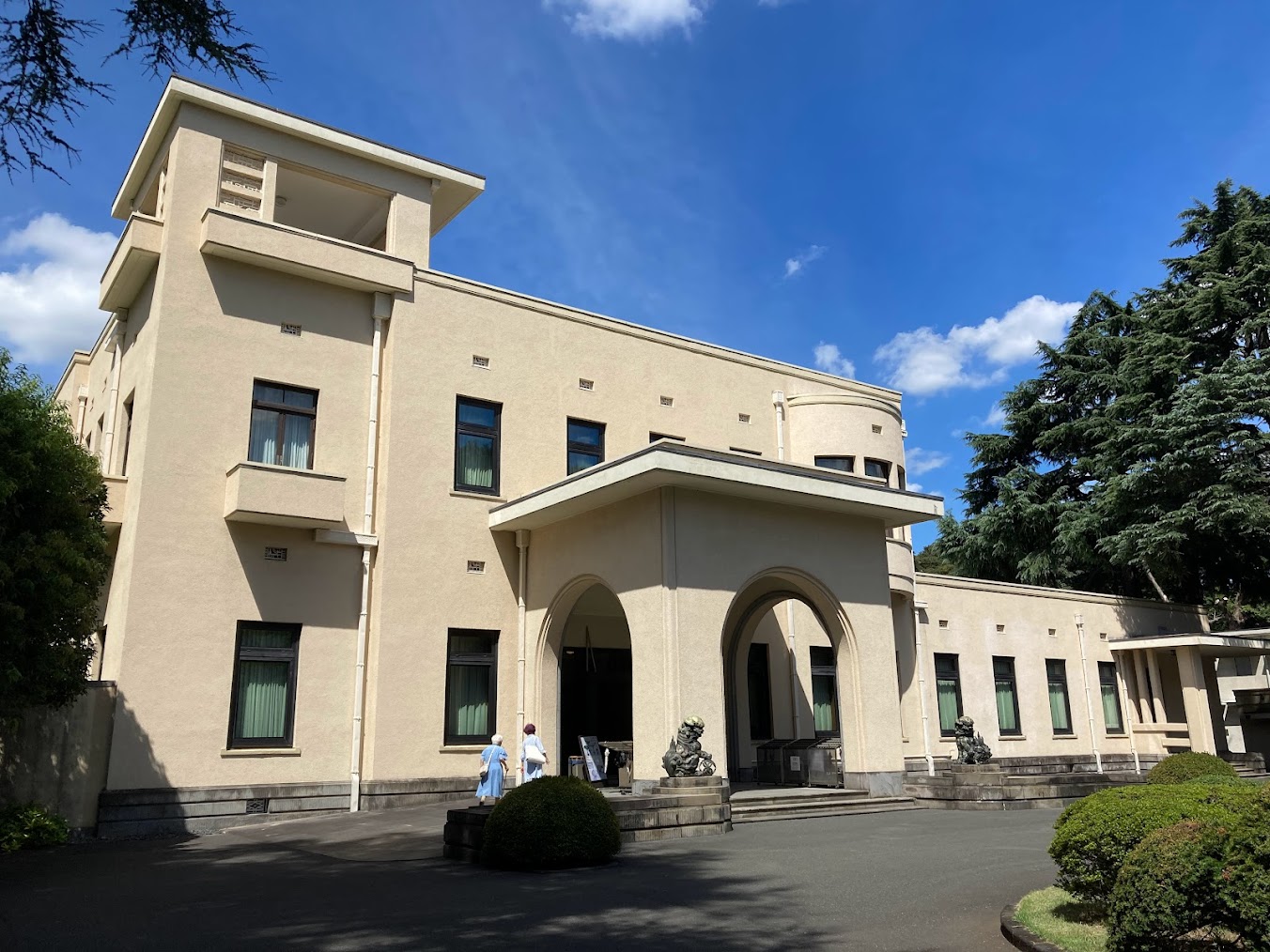
Japan began to modernize at the same time as the Meiji Restoration. Tokyo, the capital of Japan, continued to be a model of a modern city in Japan. In the early days, Western-style brick buildings were constructed, but after the Great Kanto Earthquake of 1923, reinforced concrete buildings began to be built. In Tokyo, there remain many buildings that can be considered evidence of the pursuit of modernization in Japan, a country prone to earthquakes.
These cultural assets of Modern Tokyo maybe registered as World Heritage Sites.
contents
When the capital was moved to Tokyo in modern times, the functions of various central government ministries and agencies were concentrated there. The buildings that housed these ministries were constructed with bricks of European origin, appropriate for a modern nation. The same was true for the Imperial Family. Taking inspiration from the royal families of the great European powers, magnificent Western-style palaces were constructed. Other projects that symbolize Japan's modernization include the reconstruction of Nihonbashi, the center of Japan's transportation, with a stone bridge, the railway construction that dramatically changed Japan's transportation itself, and the construction of Tokyo Station, its central station.
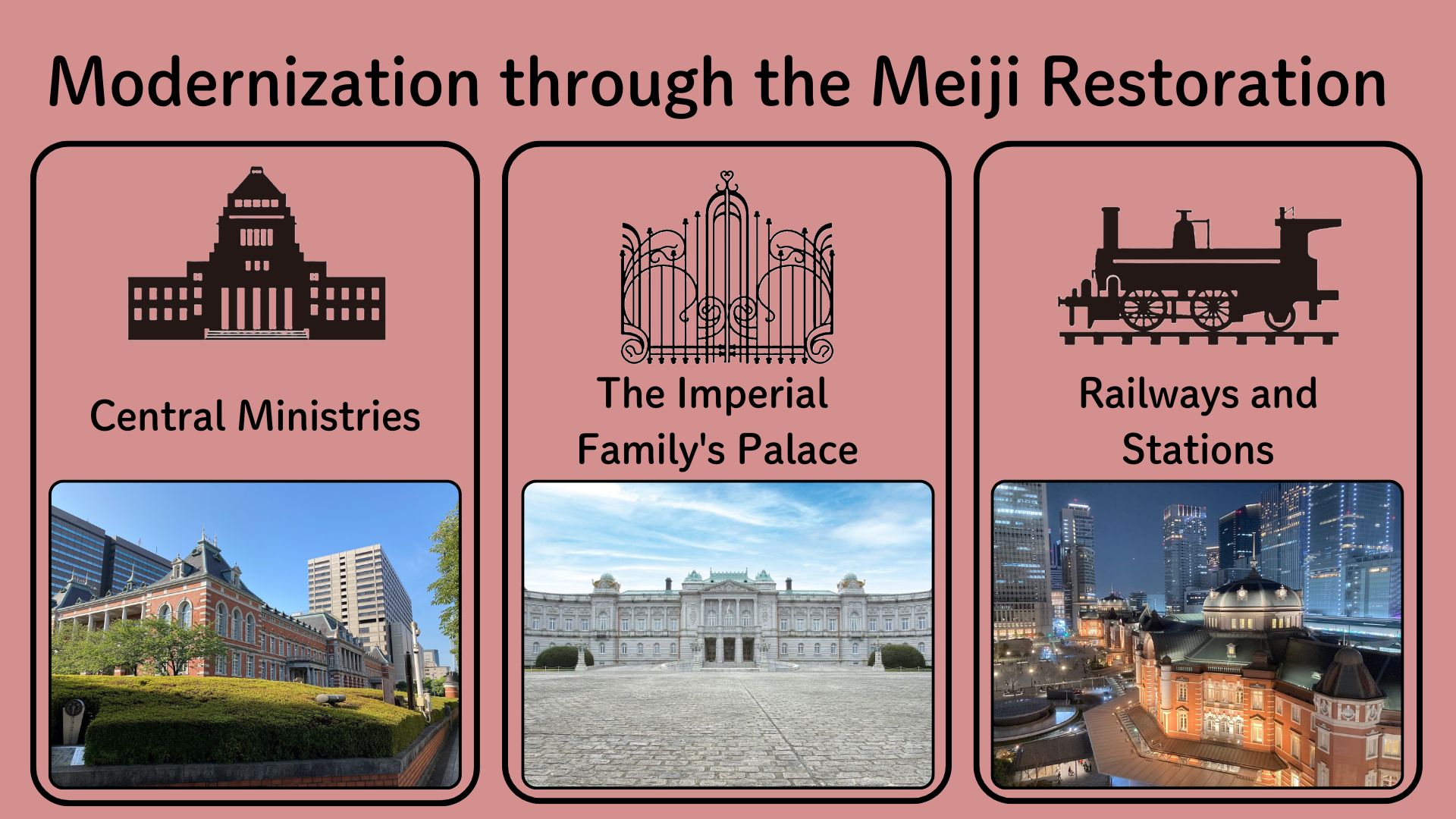
On September 1, 1923, Tokyo was hit by a major earthquake. This was the Great Kanto Earthquake. Many of the brick buildings that were symbols of modernization collapsed. Learning from this, people began to build buildings made of earthquake-resistant reinforced concrete instead of brick. In particular, brick museums that collapsed in the Great Kanto Earthquake were almost always rebuilt with reinforced concrete. Other reconstruction projects included the construction of steel bridges strong enough to withstand an earthquake. This type of modern reinforced concrete architecture, which was conscious of earthquake resistance, was born in Tokyo, and had a huge influence on earthquake-resistant architecture in Japan thereafter. Also, around this time, the number of gorgeous buildings built by private companies increased. Even today, you can see a part of life at that time in company offices, department stores, and other places.
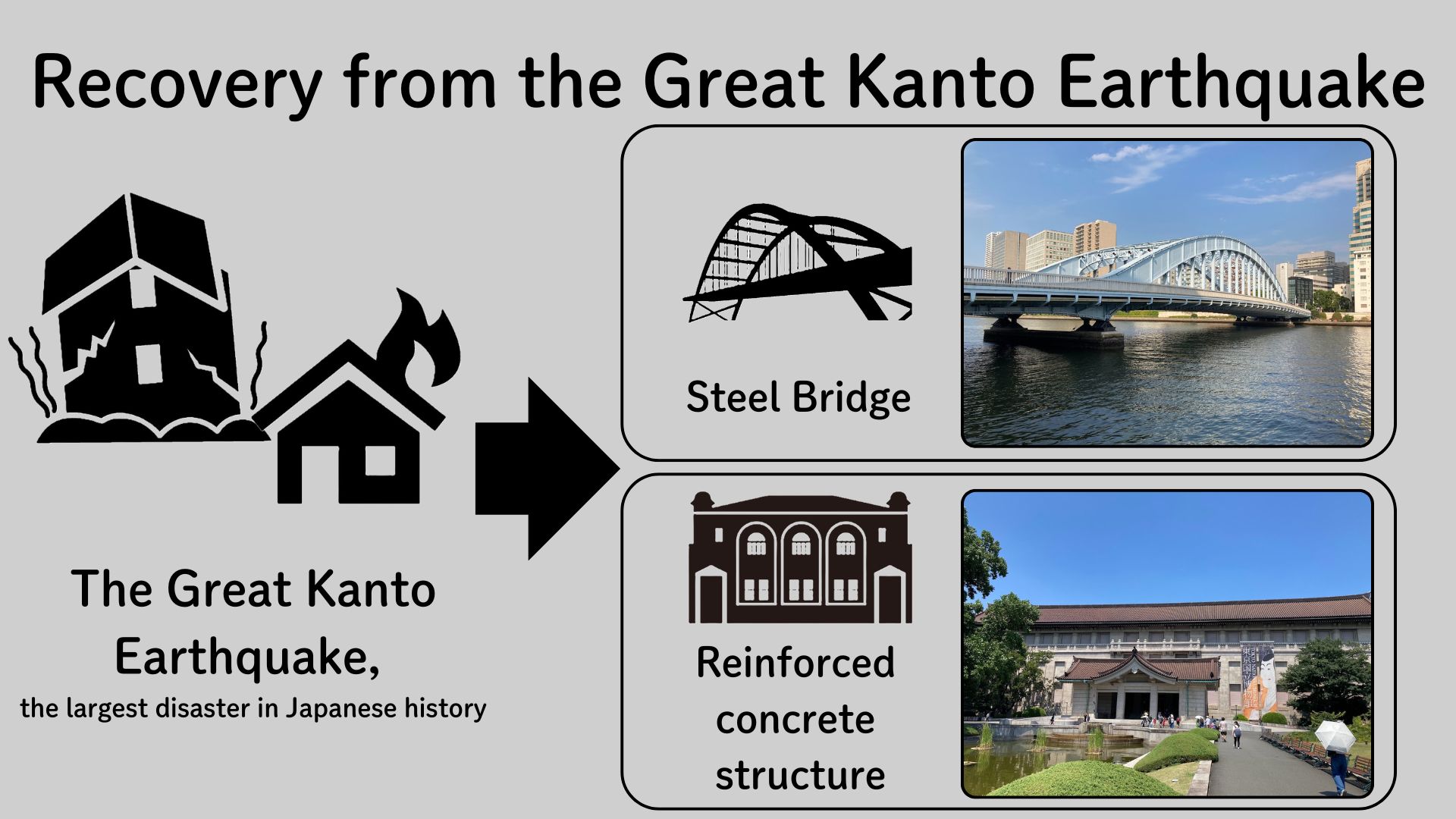
| Name of cultural assets | Explanation | Photo | Location |
|---|---|---|---|
| Old Ministry of Justice Building (旧法務省本館) |
This is a brick building in the German Neo-Baroque style. | 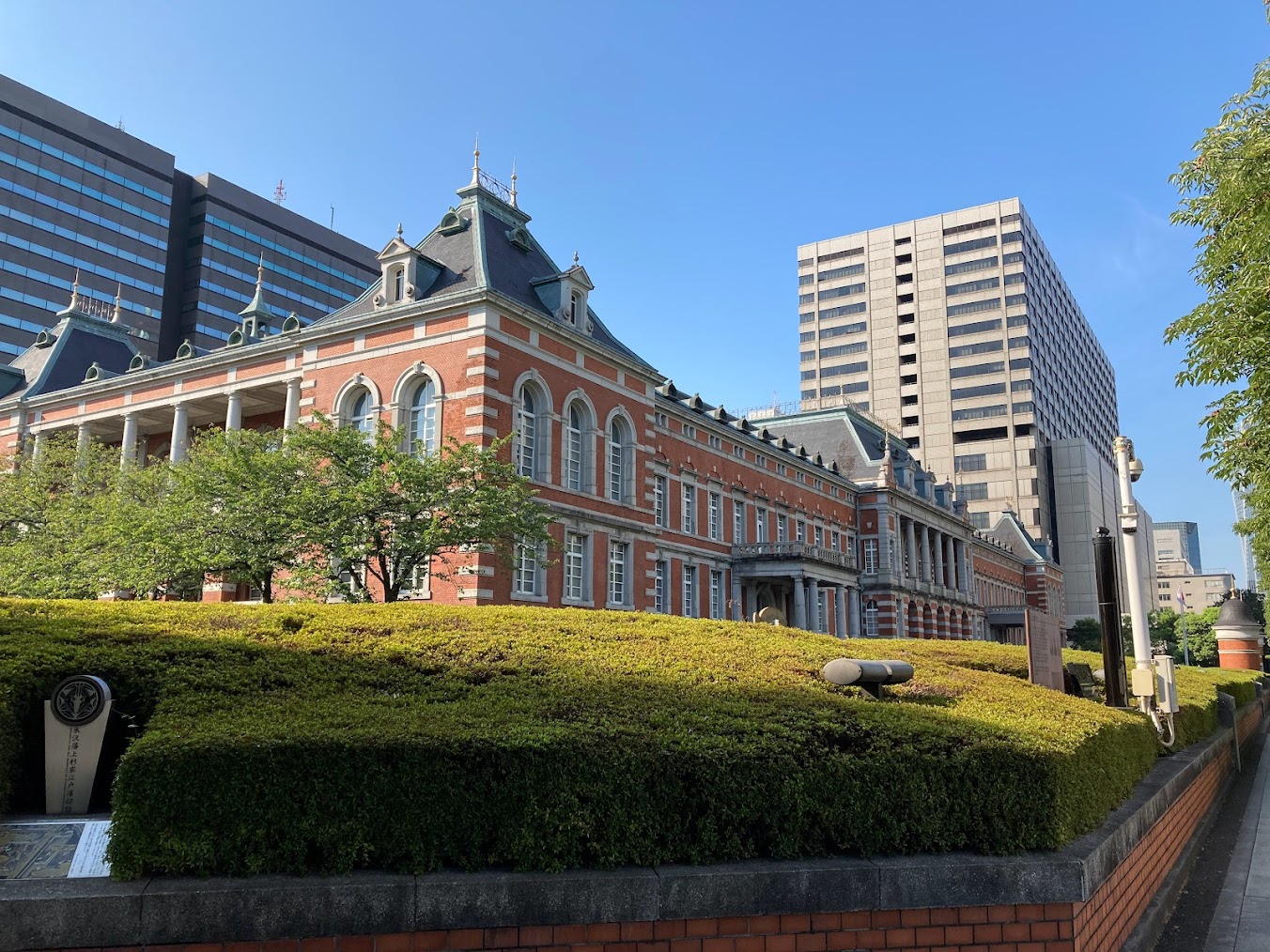 |
Google Map |
| Congratulatory Gallery (表慶館) |
This is a neo-baroque art museum built to commemorate the wedding of the Crown Prince. |  |
Google Map |
| Akasaka Palace (迎賓館赤坂離宮) |
This is a palace built as a residence for the crown prince, and is currently used as a state guesthouse. |  |
Google Map |
| Tokyo Station Marunouchi Building (東京駅丸の内駅舎) |
This is a large station building made of bricks, and is still known as one of Japan's leading station buildings. |  |
Google Map |
| Eitai Bridge (永代橋) |
This bridge is a steel bridge built as part of the reconstruction project after the Great Kanto Earthquake. | 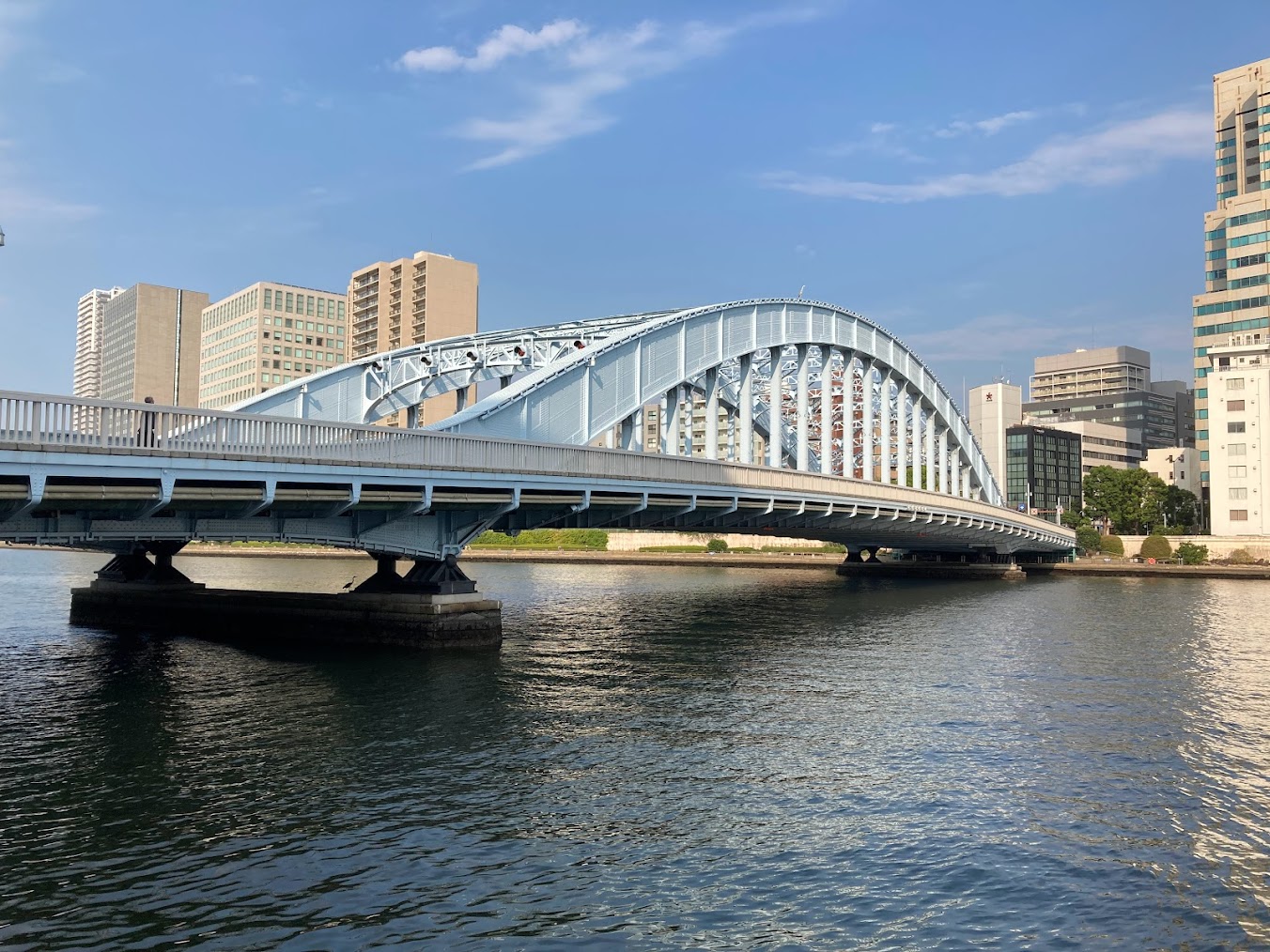 |
Google Map |
| Meiji Memorial Picture Gallery (聖徳記念絵画館) |
This is an art museum related to the Meiji Emperor.Armored concrete structure. |  |
Google Map |
| Kiyosu Bridge (清州橋) |
This bridge, along with Eitai Bridge, is a steel bridge built as part of the reconstruction project after the Great Kanto Earthquake. |  |
Google Map |
| Former Residence of Prince Asaka (旧朝香宮邸) |
This is a royal residence made of reinforced concrete and is currently used as Tokyo Metropolitan Teien Art Museum. |  |
Google Map |
| Tokyo National Museum Main Building (東京国立博物館本館) |
This museum is made of steel-reinforced concrete and was built to restore the old museum that was damaged in the Great Kanto Earthquake. | 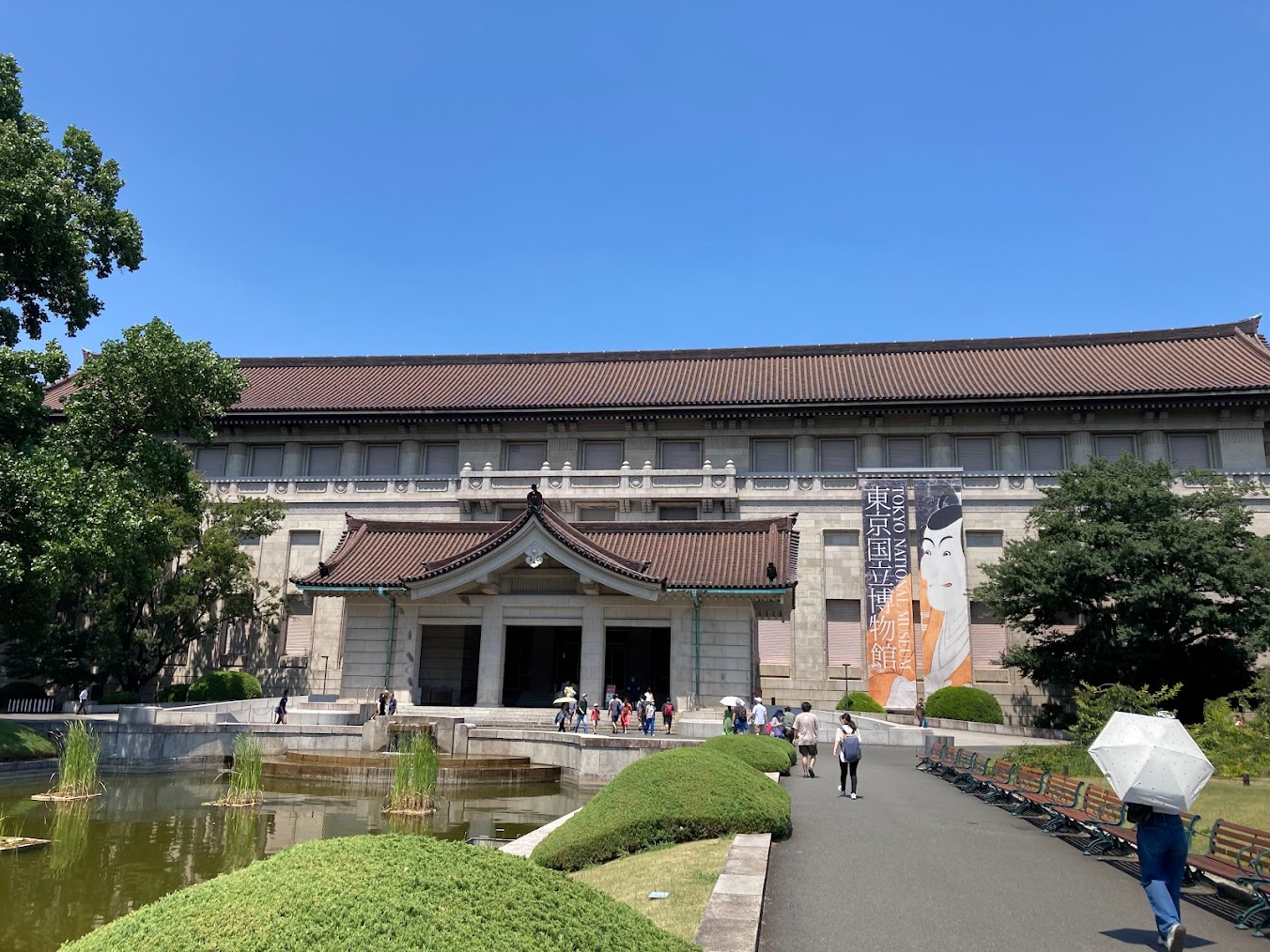 |
Google Map |